The 20 Best Protein Sources For Vegetarians
This recipe may contain Amazon or other affiliate links. As an Amazon Associate I earn from qualifying purchases.
Vegetarians need solid protein sources that are directly coming from animal sources. Learn about 20 protein sources that are appropriate for vegetarians.
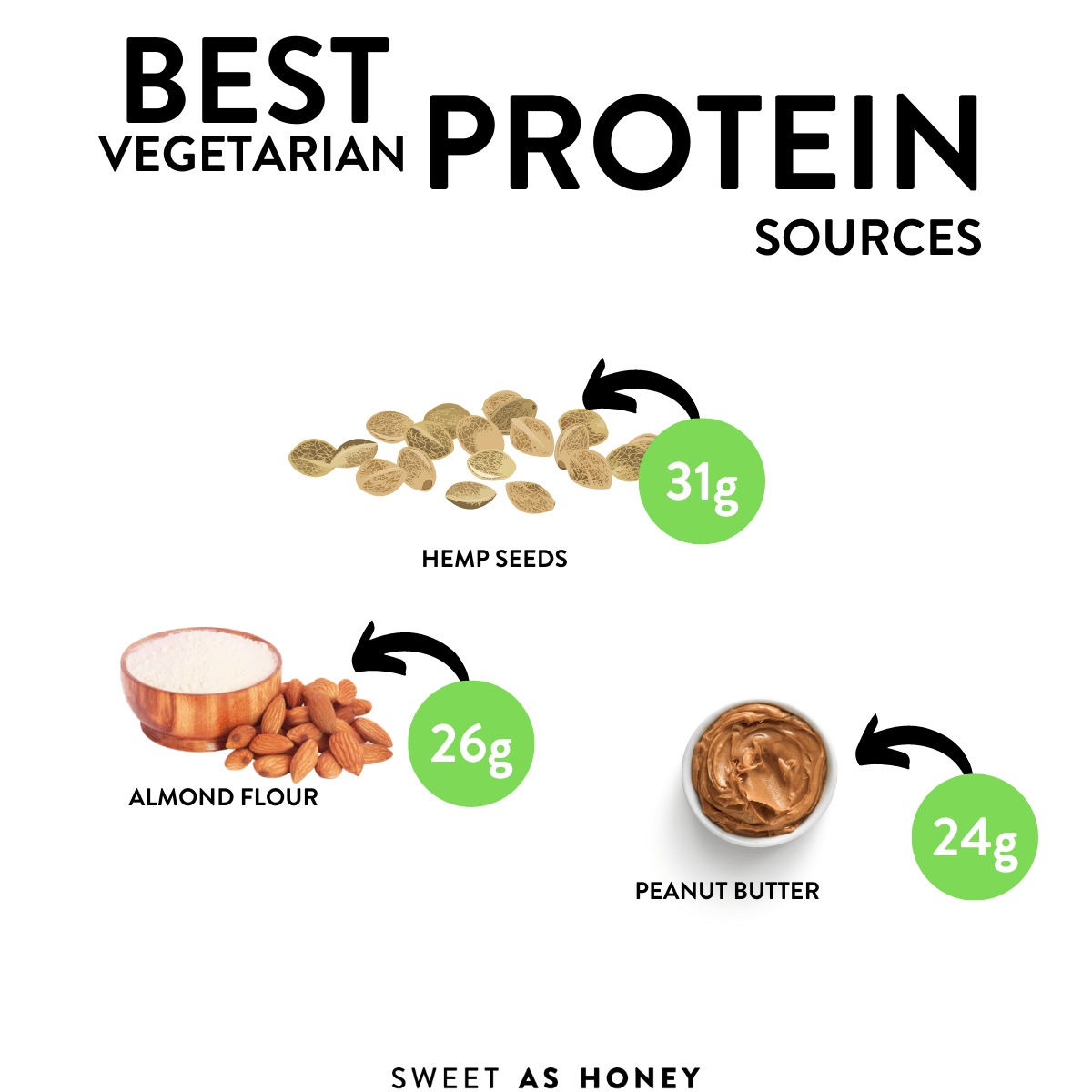
Meat and fish are the main sources of protein for most people. For people on a vegetarian diet, it’s essential to find other ways of getting the much-needed recommended intake of protein.
How Much Protein Should I Eat In A Day?
The typical amount of protein needed daily is 0.8 grams of protein per kilogram of body weight (source).
This amounts to 0.36 grams of protein per pound of body weight.
Use the calculator below to figure out how much protein you should eat in a day!
Of course, this amount is just indicative. And people exercising a lot should increase their protein intake to help the body repair and build muscles.
Daily Protein Calculator
Use the slider below to find out how much protein is recommended for your body weight.
When you slide this slider, you’ll also see a table with how much of the items below you need to eat to reach this value!
| Food | Protein Per 100g | Needed To Reach Your DI* | Also Suitable For |
|---|---|---|---|
| Yogurt | 9g | Keto | |
| Eggs | 12.4g | Keto | |
| Lentils | 8.4g | Vegan | |
| Protein Powder | 60g | Varies | |
| Chia Seeds | 16.5g | Keto, Vegan | |
| Quinoa | 5g | Vegan | |
| Cottage Cheese | 11g | Keto | |
| Hemp Seeds | 31.6g | Keto, Vegan | |
| Black Beans | 8.9g | Vegan | |
| Edamame | 11.2g | Vegan | |
| Peanut Butter | 24g | Keto, Vegan | |
| Almond Butter | 21g | Keto, Vegan | |
| Almond Flour | 26.2g | Keto, Vegan | |
| All-Purpose Flour | 10.9g | Vegan | |
| Tofu | 10.1g | Keto, Vegan | |
| Buckwheat | 13.2g | Vegan | |
| Chickpeas | 7g | Vegan | |
| Brussels Sprouts | 3.5g | Keto, Vegan | |
| Avocado | 2g | Keto, Vegan | |
| Oats | 12g | Vegan |
* the value is for illustrative purpose only. It's not recommended to get all the daily protein from a single source.
Top Sources Of Protein
The sources of protein below are 20 of the easiest way to find protein on a vegetarian diet.
While the list focuses on vegetarians, many of the items are also suitable for people on a vegan diet.
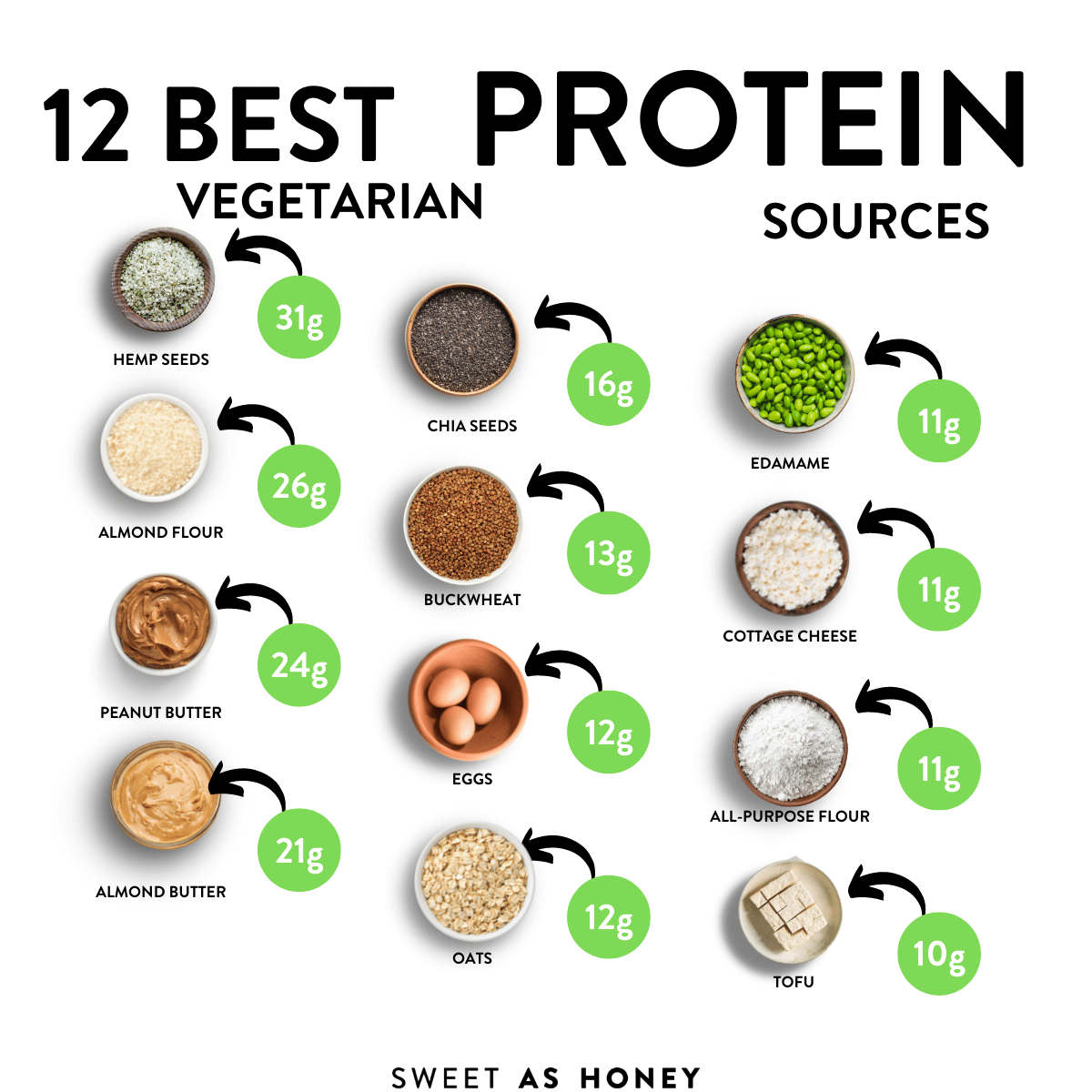
1. Hemp Seeds
Hemp Seeds: 31.6g of protein per 100g
Hemp Seeds are a fantastic source of protein, and they also bring omega-3 fatty acids and Vitamin E.
And don’t worry, you won’t get any psychoactive effects from eating hemp hearts, they only contain trace amounts.
Delicious Recipes With Hemp Seeds
More Hemp Seed Recipes.
2. Almond Flour
Almond Flour: 26.2g of protein per 100g
Almond flour is one of my favorite low-carb flours. It’s not only low in net carbs, but it’s also rich in protein, very rich.
Almond flour can be used to make all your classic baking recipes, but with a low-carb twist.
Delicious Recipes With Almond Flour
More Almond Flour Recipes.
3. Peanut Butter
Peanut Butter: 24g of protein per 100g
Peanut Butter is a protein powerhouse. However, it’s essential to source natural peanut butter, which contains only peanuts (and sometimes salt).
Other kinds of peanut butter are loaded with sugar and oils that greatly reduce their nutritional value. Natural peanut butter is much healthier with no cholesterol at all!
If you can’t find pure peanut butter, you can make your own healthy peanut butter.
Delicious Recipes With Peanut Butter
More Peanut Butter Recipes.
4. Almond Butter
Almond Butter: 21g of protein per 100g
Almond Butter is another natural butter made only from almonds.
Because it’s so similar to peanut butter, you can almost always swap the two in any recipe.
If you can’t find pure peanut butter, you can make your own healthy peanut butter.
Delicious Recipes With Almond Butter
More Almond Butter Recipes.
5. Chia Seeds
Chia Seeds: 16.5g of protein per 100g
Chia seeds are high-protein seeds that are also very rich in fiber and other nutrients.
These seeds can be used to make egg alternatives by leveraging their gelling properties.
Delicious Recipes With Chia Seeds
More Chia Seed Recipes.
6. Buckwheat
Buckwheat: 13.2g of protein per 100g
Despite its name, buckwheat has nothing to do with wheat. It’s a grain-like seed that can be used to make many healthy recipes.
It’s another plant-based complete protein source.
Delicious Recipes With Buckwheat
More Buckwheat Recipes.
7. Eggs
Egg: 12.4g of protein per 100g
Eggs are an easy and simple vegetarian protein source. It’s also a complete protein source, but it’s, of course, not a vegan-friendly protein.
Eggs can be used in every meal from breakfast to dinner, lunch, and snacks.
Delicious Recipes With Eggs
More Egg Recipes.
8. Oats
Oats: 12g of protein per 100g
While oats are not particularly keto-friendly, they are relatively low in carbs and rich in nutrients for plant-based proteins.
It’s a cereal that can easily be turned into flour and used to make many baking recipes.
Delicious Recipes With Oats
More Oat Recipes.
9. Edamame
Edamame: 11.2g of protein per 100g
Also known as Soya Beans or Soybeans, edamame are peas similar to green beans that are used to make many soy products from Soy Sauce to Tempeh or Tofu.
But it’s a vegetable that is also delicious on its own, just cooked in boiled water. It’s another complete protein source with all essential amino acids.
Delicious Recipes With Edamame
10. Cottage Cheese
Cottage Cheese: 11g of protein per 100g
Cottage Cheese is a low-carb fresh cheese that brings a refreshing taste to salads and breakfasts.
While it’s made from curdled milk, it contains almost none of the carbs present in cow milk but a high protein content.
Delicious Recipes With Cottage Cheese
More Cottage Cheese Recipes.
11. All-Purpose Flour
All-Purpose Flour: 10.9g of protein per 100g
All-Purpose Flour is of course not a keto-friendly flour, but it’s otherwise compatible with a vegan or vegetarian diet.
It’s also very high in protein and can be used in almost all baking recipes.
Gluten-Free All-Purpose Flour typically contains less protein, partly because Gluten is a protein itself, so removing it from the flour reduces the total amount of protein.
Delicious Recipes With All-Purpose Flour
12. Tofu
Tofu: 10.1g of protein per 100g
Tofu, also known as bean curd, is a soft block made from the coagulation of soy milk.
It’s very low in calories while being rich in protein, iron, calcium, and magnesium.
Soy is a complete protein source, so it contains all essential amino acids, and it’s compatible with a vegan diet.
Tofu can be a vegan substitute for chicken in almost all curry recipes.
Delicious Recipes With Tofu
13. Yogurt
Yogurt: 9g of protein per 100g
Yogurt is a surprising source of protein, but it brings a good amount of protein, and it’s easy to eat in a larger quantity than some of the other protein sources.
The best type of yogurt for proteins is Greek yogurt.
Delicious Recipes With Yogurt
More recipes with Yogurt.
14. Black Beans
Black Beans: 8.9g of protein per 100g
Black beans are another legume very rich in protein.
Also known as black turtle beans, they also bring 37% of the recommended intake of Vitamin B9 and 21% of Vitamin B1 and several minerals.
Delicious Recipes With Black Beans
More Black Bean Recipes.
15. Lentils
Lentils: 8.4g of protein per 100g
Lentils are simple legumes that have been used in cooking for a few thousand years.
While they are higher in carbs than some other legumes, they are rich in vitamins B9, B6, and B5, and in iron, magnesium, manganese, and phosphorus.
Delicious Recipes With Almond Flour
16. Chickpeas
Chickpeas: 7.5g of protein per 100g
Chickpeas are legumes also known as Garbanzo Beans and sometimes Egyptian Peas.
While it’s often used to make hummus, it can also be used roasted as a snack or in curries to add taste and texture.
Chickpeas are also a complete protein source, which means they include all essential amino acids.
Delicious Recipes With Chickpeas
More Chickpea Recipes.
17. Quinoa
Quinoa: 5g of protein per 100g
Quinoa is an ancient seed that is making an impressive comeback as a healthy vegetable. It can be used to replace rice in curries, but it can also make loads of delicious recipes.
With its complete protein profile, quinoa is another source of all essential amino acids.
Delicious Recipes With Chia Seeds
More Quinoa Recipes.
18. Brussels Sprouts
Brussels Sprouts: 3.5g of protein per 100g
While Brussels Sprouts contain fewer proteins than legumes, seeds, or nuts, they are quite high compared to many other leafy vegetables.
Delicious Recipes With Brussels Sprouts
19. Avocados
Avocados: 2g of protein per 100g
Avocados don’t contain a lot of protein, but it’s not a negligible quantity either.
So including avocados in your diet or on your protein balls is actually not a bad idea at all, plus you’ll get all the healthy fat, vitamins, and micronutrients (such as Zinc) from the vegetable.
Delicious Recipes With Avocados
More Recipes with Avocados.
20. Protein Powder
Protein Powder: 30-70g of protein per 100g
I know protein powder is (mostly) not a wholesome ingredient, but it’s such a high-protein ingredient and it’s so convenient that it can’t be overlooked!
Plus you can always get healthy and lightly refined options, such as peanut-based protein powder.
Delicious Recipes With Protein Powder
Frequently Asked Questions
The 4 best proteins for vegetarians are hemp seeds, almond flour, peanut butter, and almond butter. It’s good to add edamame, eggs, or chickpeas for complete proteins.
Not at all! In fact, most vegetarians and vegans understand nutrition much better and therefore tend to take enough proteins while some non-vegetarians might be lacking some macronutrients.
There’s no (natural) food in the world that is made only from protein. In fact, even beef which is heralded as the default and best protein source only contains 26 grams per 100g.
Out of the 21 amino acids needed by the human body, 9 cannot be made by our organs, the rest can be synthesized.
These 9 amino acids are called essential amino acids and are Histidine, Isoleucine, Leucine, Lysine, Methionine, Phenylalanine, Threonine, Tryptophan, and Valine.
Conclusion
Whether you are on a vegan or vegetarian diet, there are many protein-rich foods that you can use to boost your protein intake.
And by knowing which ones are complete vegetarian or vegan protein sources, you can make sure you have all the amino acids your body needs.
Posted In:
Disclaimer
The recipes, instructions, and articles on this website should not be taken or used as medical advice. The nutritional data provided on Sweetashoney is to be used as indicative only. The nutrition data is calculated using WP Recipe Maker. Net Carbs is calculated by removing the fiber and some sweeteners from the total Carbohydrates.
You should always calculate the nutritional data yourself instead of relying on Sweetashoney's data. Sweetashoney and its recipes and articles are not intended to cure, prevent, diagnose, or treat any disease. Sweetashoney cannot be liable for adverse reactions or any other outcome resulting from the use of recipes or advice found on the Website.
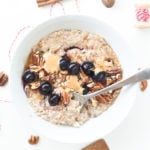
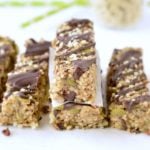
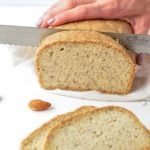

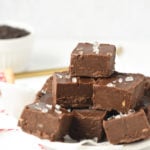


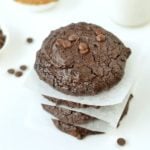
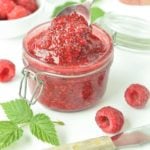
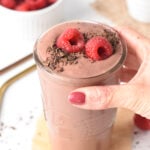
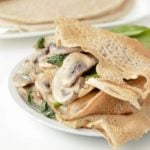


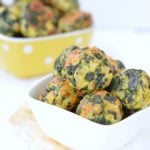

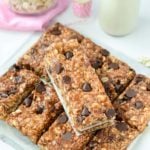
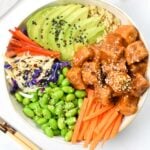
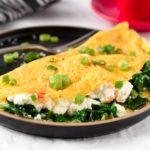








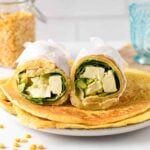
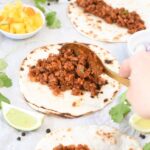
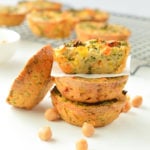

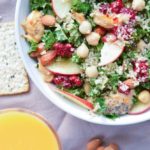
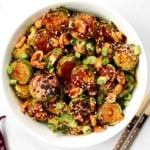
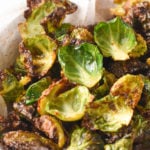

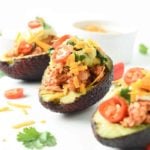



Share this post!
If you enjoyed this post, share it with your close ones!
Leave a comment